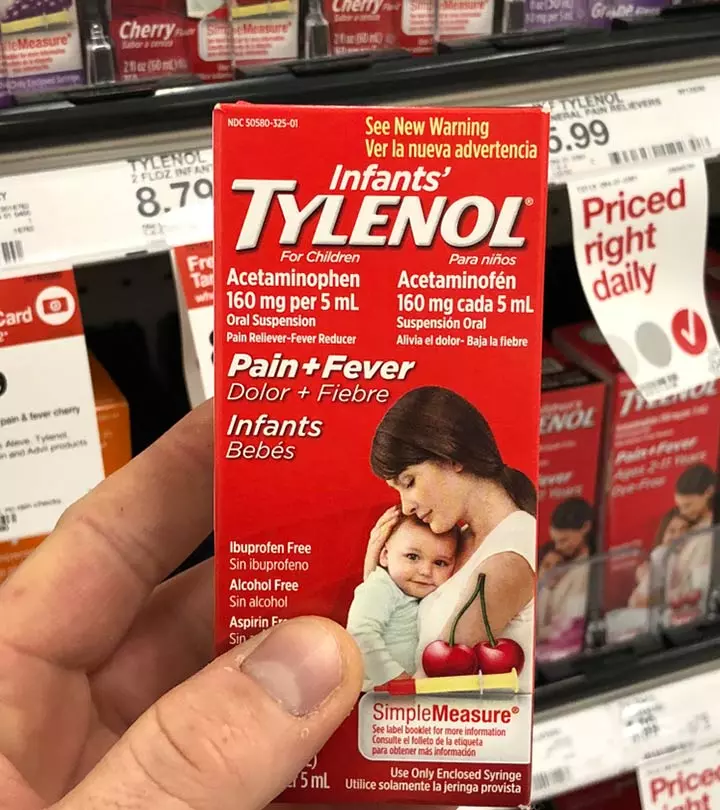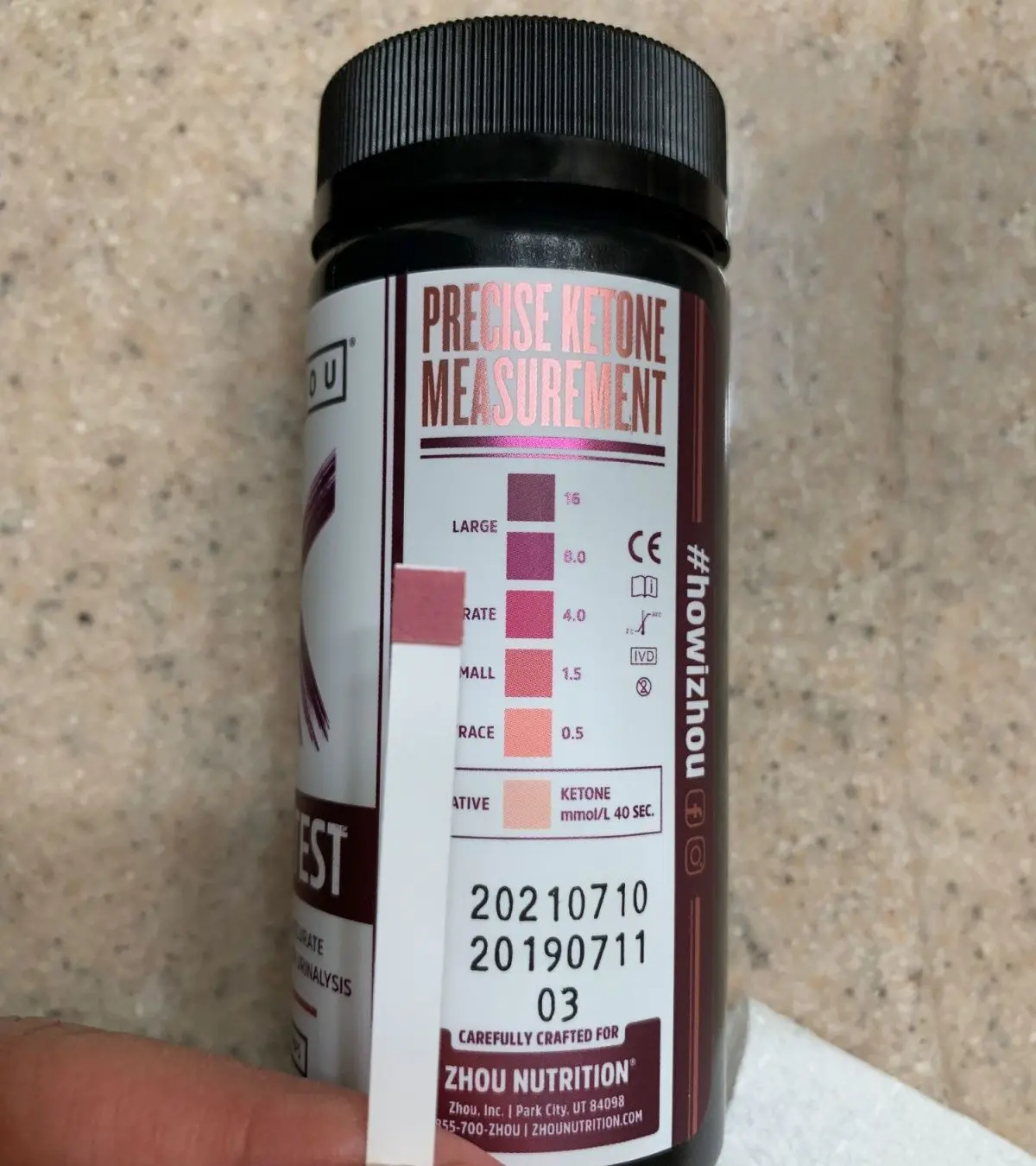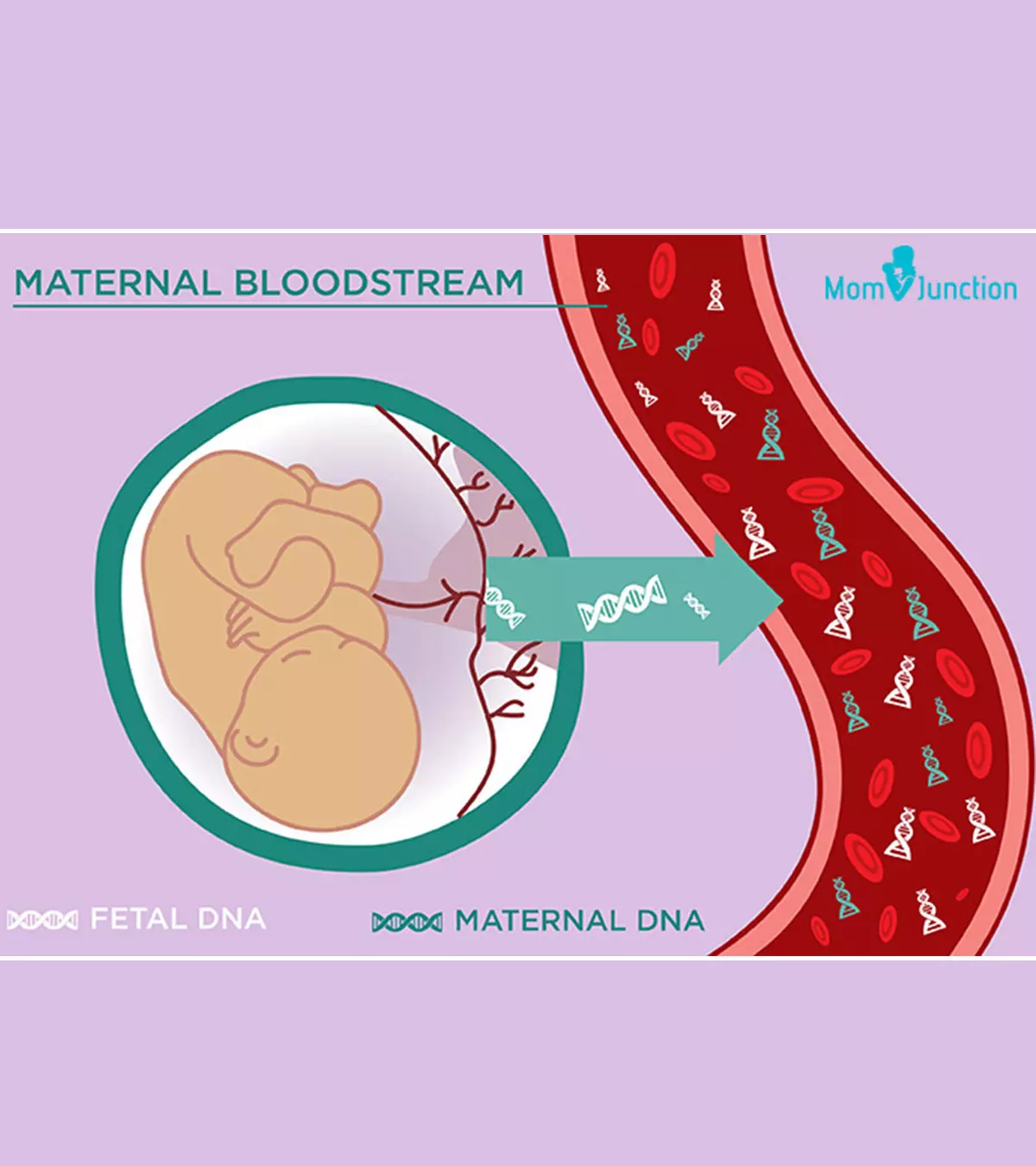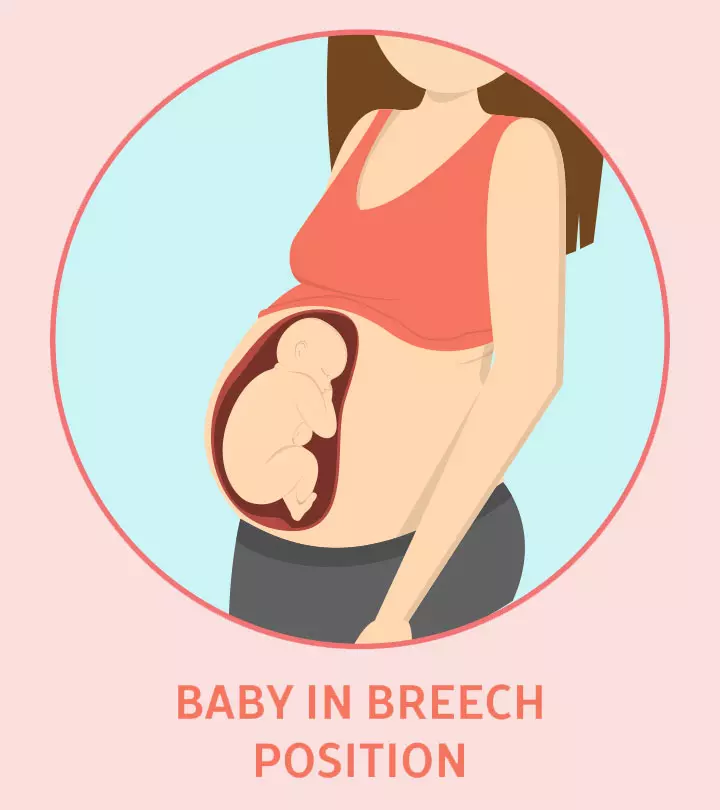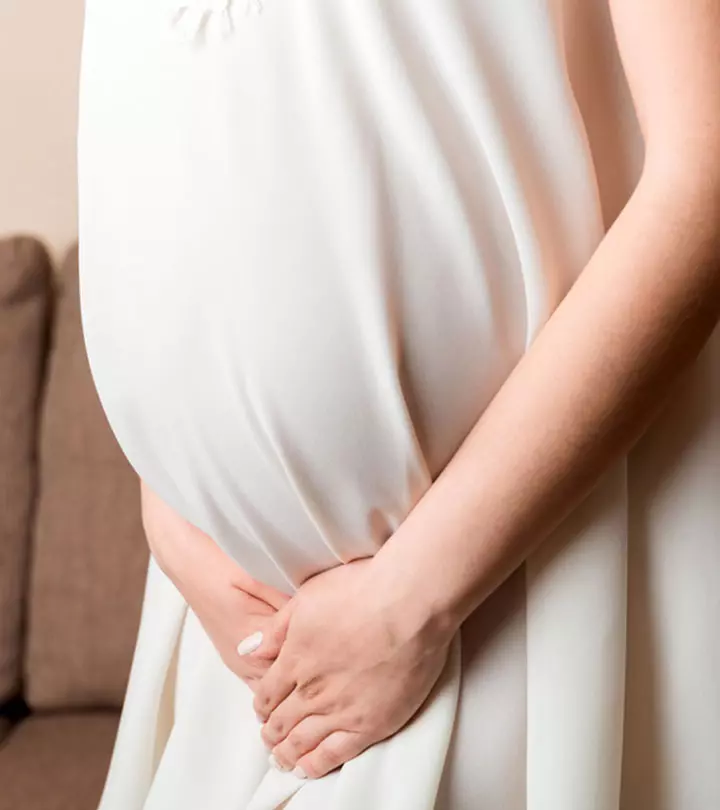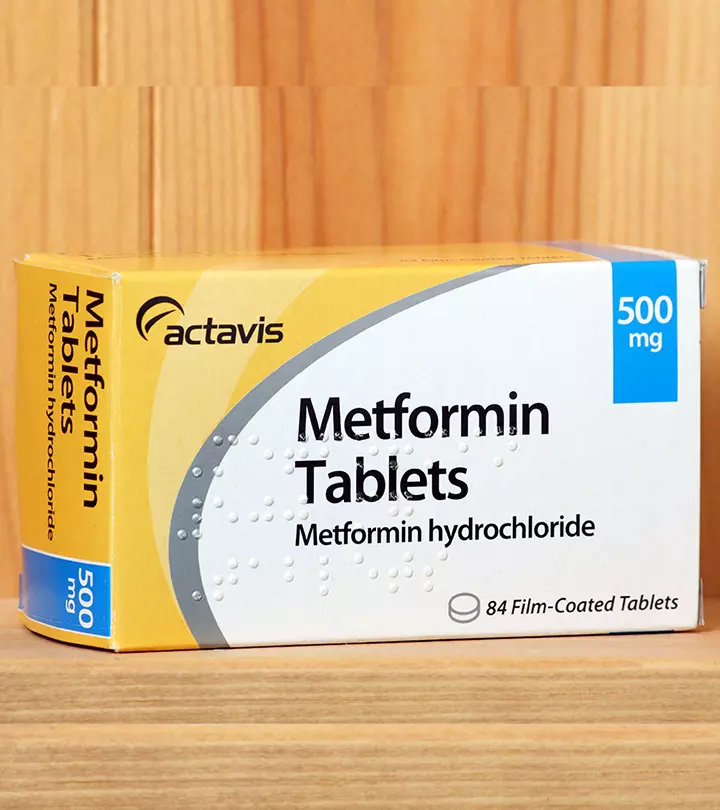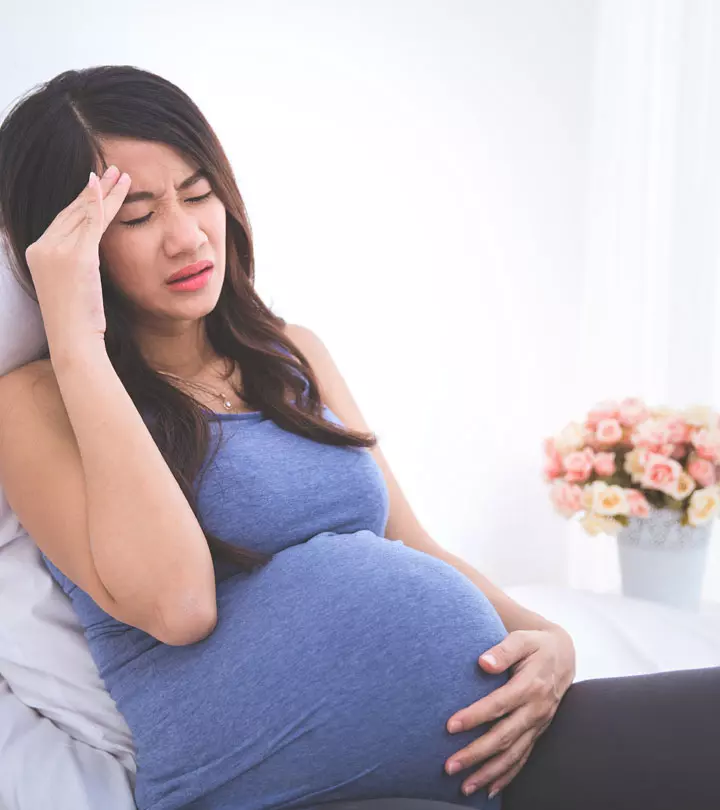
Image: ShutterStock
Norovirus infection, commonly known as stomach flu, is a common gastrointestinal infection. Abdominal cramps, nausea, vomiting, and headaches are some symptoms that may happen in pregnancy as well as in norovirus infection. However, infection of norovirus in pregnancy needs medical attention. Moreover, experiencing norovirus infection in pregnancy can make things difficult for expecting mothers. You must consult your doctor if you experience any new or unusual symptoms that emerge suddenly. Continue reading this post as we talk about the causes, symptoms, risk factors, complications, management, and treatment of the infection in expecting mothers. We also discuss how it impacts you and your baby (1)
Key Pointers
- Norovirus is a common gastrointestinal problem also known as stomach flu.
- Symptoms of norovirus include abdominal cramps, nausea, vomiting, headaches, lethargy, weakness, and muscle aches.
- If contracted during pregnancy, it may cause preterm labor and UTI in the expecting mother.
- If diarrhea persists for more than three days, or if there is bloody stool or dehydration, consult a doctor.
- Basic hygiene practices can easily prevent contracting norovirus.
What Is Norovirus?
Norovirus leads to foodborne illnesses such as gastroenteritis, which is popularly known as also “stomach flu.” According to the US Centers for Disease Control and Prevention (CDC), norovirus is responsible for almost 58% of foodborne illnesses in the US.
While it is certainly an unpleasant disease that an expecting mother can contract, it does not affect fetal or maternal health adversely.
About 1 in 5 pregnant women gets gastroenteritis every year. Noroviruses are RNA viruses that do not directly affect the baby. The infection caused by norovirus is usually mistaken as ‘food poisoning.’ However, with timely treatment norovirus can be treated effectively.
 Quick fact
Quick factSymptoms Of Norovirus Infection
The following are the symptoms of norovirus when pregnant:
- Headaches
- Vomiting
- Low-grade fever

Image: IStock
- Diarrhea
- Abdominal cramps
- Chills,
- Lethargy
- Weakness
- Muscle aches.
A person usually suffers from norovirus infection for 2-3 days (2).
How Do Pregnant Women Get Infected With Norovirus?
- Norovirus infection is contagious. If you touch anything that is touched by the infected person, then there are a good amount of chance of you encountering the virus
- Sharing the food or drink of an infected person
- Eating or drinking from the same plate or glass
How Does Norovirus Infection Affect The Mother And The Fetus?

Image: IStock
With electrolyte imbalances, pregnant women are at risk for the following reasons:
- Preterm labor
- The expecting mother can develop a urinary tract infection
The expecting mother will usually exhibit these symptoms within 24-48 hours after she has been exposed to the virus. People usually get affected by this virus in public places like hospitals, schools, daycare centers, restaurants, etc.
Apart from this, swimming pools, lakes, uncooked food, and ice machines, are also major sources of infection. Pregnant women have reduced immune response so there are maximum chances of her getting infected with the virus.
If you are expecting and identify any of the symptoms mentioned above related to gastroenteritis, you should see your medical practitioner immediately. If the fever is not too high and there is no serious diarrhea, there are minimal chances of any major complications concerning your pregnancy.
However, if you are not able to keep up with the fluids, have a high temperature, and identify any serious complications, it is wise to see your gynecologist. If this is not your first pregnancy, and you have a sick child at home who has been identified with norovirus, maintain acute hygiene. This will help you avoid the perinatal transmission of the virus.
When Do You Have To See Your Doctor?
It is wise to seek medical help if you develop diarrhea especially if it doesn’t settle within three days. Apart from this, consult your medical practitioner if you have vomiting, bloody stools, dehydration, and abdominal pain. Please note that noroviruses are extremely contagious and are found in the faces of infected people.
How Does Norovirus Get Transmitted?

Image: Shutterstock
- Eating tainted food
- Drinking contaminated water
- Touching/ shaking hands with the person or contaminated objects or surface
- If you are staying with the infected person
- Noroviruses are extremely difficult to wipe. This is because they can easily withstand extreme temperature levels. Being extremely careful is the only solution to avoid getting infected with norovirus while pregnant (3).
Risk Factors
The following are the risk factors for getting infected with norovirus in pregnancy:
- Having a weak immune system
- Eating food that is not cleaned or cooked properly.
- Getting contaminated due to another person’s ailment
- Living or staying in resorts, hotels, cruises, hospitals, hotels, etc.
Complications
For a number of people, norovirus infection settles within a week. The best part is, that this infection is not life-threatening either to the mother or the fetus. With timely medical assistance, this virus can be treated effectively. It’s vital to monitor symptoms closely and communicate any concerns with your healthcare provider.
Warning signs Of Norovirus
- Dry mouth and throat
- Fatigue
- Dizziness
- Listlessness
- Prevention
- Neurodevelopmental disorder symptoms
- Decreased urine output (2)
 Point to consider
Point to considerPreventive Measures
- Ensure that you wash your hands frequently with a disinfected soap under running water. Do wash your hands for at least 20 seconds, especially after you have used the bathroom or before making food.
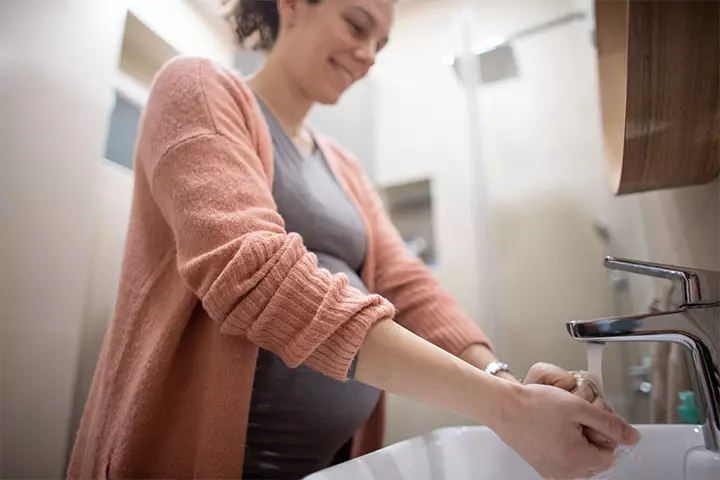
Image: IStock
- Disinfect and clean surfaces that are contaminated by diarrhea and vomiting. Use a good cleaner that ensures clean surfaces.
- If you are down with vomiting or diarrhea, ensure that you do not prepare, cook, or serve food to others.
- Wash vegetables and fruits, shellfish, and oysters thoroughly before cooking and eating them.
- Wash clothes and linens that are spoilt by fecal or vomit immediately. Ensure that you remove it carefully so that the virus does not spread.
It is important to prevent and cure Norovirus especially if you are an expecting mother.
- Maintain distance from people who showcase symptoms of diarrhea and vomiting.
- Keep your surroundings clean.

Image: Shutterstock
- Wash your hands properly with a disinfectant soap.
- Do not eat uncooked or raw food.
- If you are identified with Norovirus during pregnancy, then it is wise to keep yourself hydrated and drink a lot of fluids.
- No medication will be of great use, and a few medications like anti-diarrheal may prove to be harmful to the fetus.
- Take good rest and get in touch with your medical practitioner whenever you feel that your condition is getting worst.
 Things to know
Things to knowFrequently Asked Questions
1. Is norovirus severe in pregnant women compared to non-pregnant individuals?
Pregnant women are more susceptible to norovirus infection and may experience more severe symptoms than non-pregnant individuals, as pregnancy weakens the immune system. A study reported that one-third of pregnant women experienced gastroenteritis (5). Additionally, the severity of the symptoms may be associated with deregulation of the cytokines due to infection in the uterine compartment.
2. Can norovirus be passed from a mother to her baby during pregnancy or childbirth?
There is currently no evidence to suggest that norovirus can be transmitted from a mother to her baby during pregnancy or childbirth. Norovirus is primarily spread through contact with contaminated food, water, or surfaces, or through close contact with infected individuals.
3. Can norovirus infection lead to miscarriage or stillbirth?
Norovirus can adversely affect a pregnant woman’s health, but there is insufficient evidence to say it directly causes miscarriage or stillbirth. It’s important for pregnant women to be careful and talk to a doctor if they are worried.
4. Are there any dietary recommendations for pregnant women to prevent norovirus infection?
There aren’t any special foods pregnant women need to eat to avoid getting sick from norovirus. They need to wash their hands well and avoid eating raw or undercooked food to lower the chances of getting infected.
5. Can norovirus infection in pregnancy lead to dehydration or nutritional deficiencies?
If a pregnant woman gets affected by norovirus, she might become dehydrated due to throwing up and diarrhea. But if she drinks enough fluids and takes care of herself, she can usually avoid dehydration. While being sick might affect her appetite temporarily, it usually doesn’t cause nutritional problems unless the illness lasts long. In such cases, consult your doctor for proper treatment.
6. What should I do if I suspect I have norovirus while pregnant?
If you have norovirus, contact your healthcare provider for advice and treatment options to manage symptoms safely during pregnancy.
Norovirus is a highly contagious virus that affects the gastrointestinal system. It causes various gastrointestinal symptoms, such as vomiting, diarrhea, and weakness, which usually self-resolve in two to three days. However, norovirus can be particularly risky since it can cause electrolyte balance, raising the risk of adverse health issues, such as preterm labor. Thus, seek immediate medical guidance if you experience symptoms similar to stomach flu during pregnancy. Maintaining hygiene, avoiding raw or undercooked food, such as raw fish, and staying hydrated are some ways to prevent being infected by norovirus in pregnancy.
Infographic: Preventive Measures For Norovirus During Pregnancy
Norovirus, also known as stomach flu, is a gastrointestinal infection; experiencing it when pregnant can be difficult. So, preventing it is essential as it can directly affect you and your baby. Go through the infographic below for measures to prevent norovirus infection during pregnancy.

Illustration: Momjunction Design Team
Illustration: Norovirus And Pregnancy - Everything You Should Be Aware Of
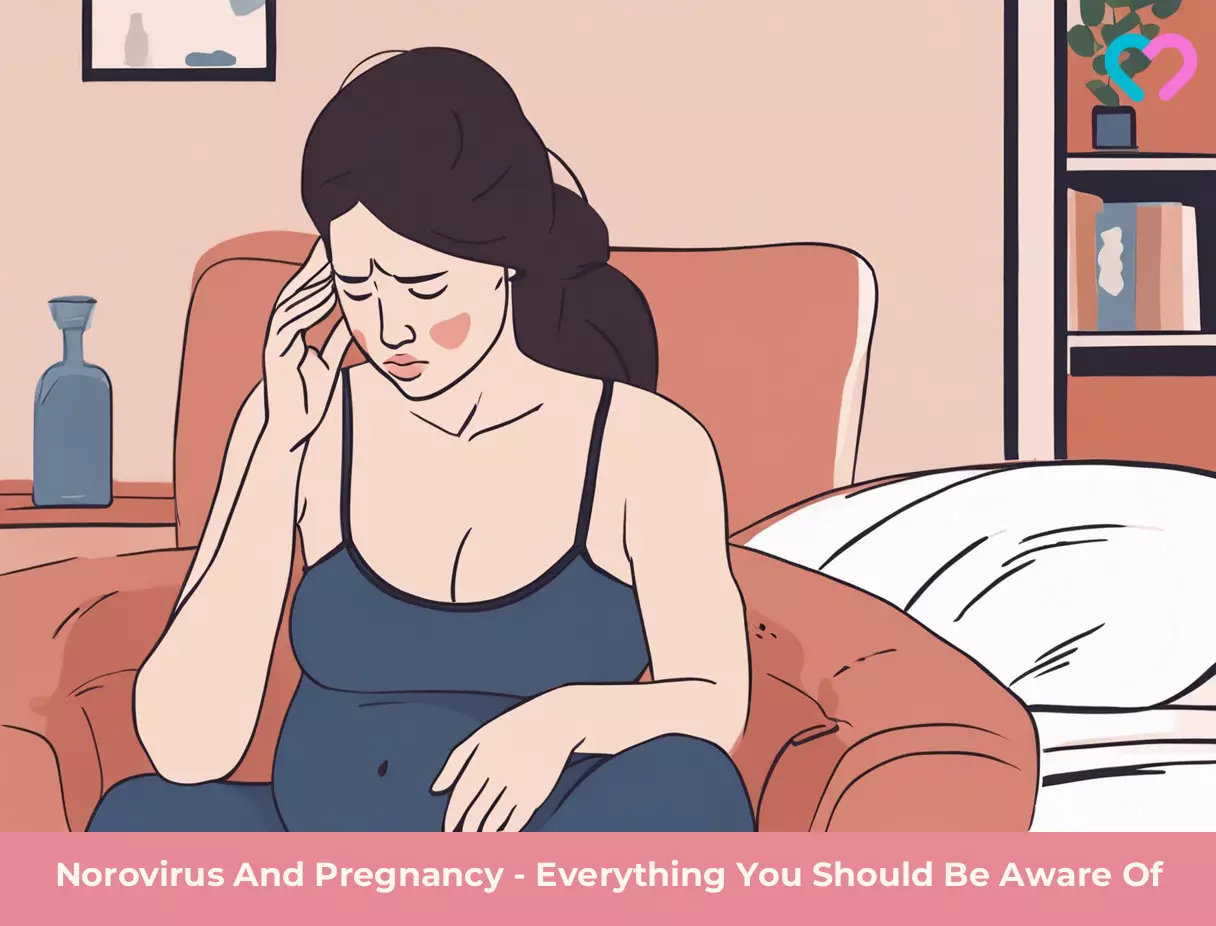
Image: Stable Diffusion/MomJunction Design Team
References
- Norovirus.
https://www.cdc.gov/norovirus/index.html - Bacteria and Viruses.
https://www.foodsafety.gov/food-poisoning/bacteria-and-viruses - How to Prevent Norovirus
https://www.cdc.gov/norovirus/prevention/?CDC_AAref_Val=https://www.cdc.gov/norovirus/about/prevention.html - Stomach Flu (Gastroenteritis).
https://familydoctor.org/condition/stomach-virus-gastroenteritis/ - Should pregnant moms be concerned about gastroenteritis?
https://utswmed.org/medblog/gastroenteritis-norovirus-stomach-flu/ - About Norovirus.
https://www.cdc.gov/norovirus/about/index.html
Community Experiences
Join the conversation and become a part of our nurturing community! Share your stories, experiences, and insights to connect with fellow parents.
Read full bio of Dr. Deepti Gupta
Read full bio of shreeja pillai
Read full bio of Rebecca Malachi
Read full bio of Dr. Joyani Das









